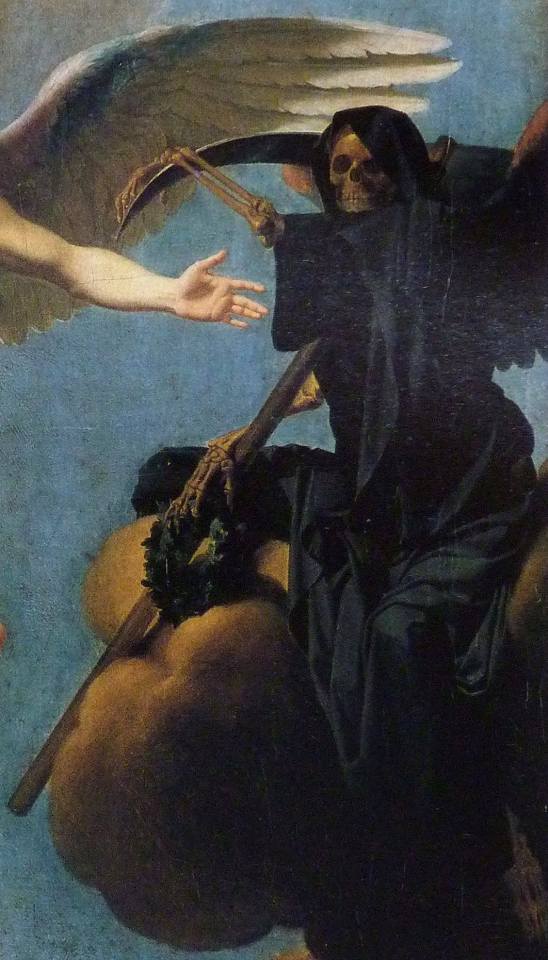#La liberté ou la mort
Explore tagged Tumblr posts
Text
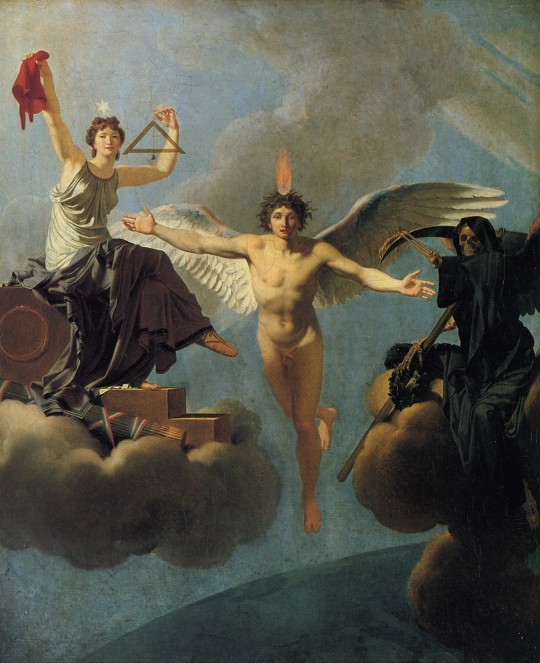
1795, Jean-Baptiste Regnault, La Liberté ou la Mort
#Jean-Baptiste Regnault#La Liberté ou la Mort#saec. XVIII#1795#pictura#Musée du Louvre#Parisii#Libertas#Mors
14 notes
·
View notes
Text
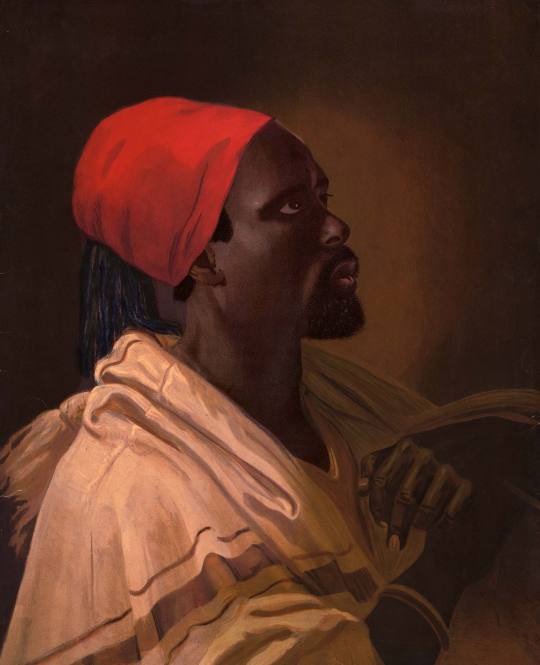
Toussaint L'Ouverture by George De Baptiste.
#George De Baptiste#haiti#République d'Haïti#Repiblik d'Ayiti#french revolution#jacobins#haitian revolution#Révolution haïtienne#Révolution française#black lives matter#Liberté ou La Mort
138 notes
·
View notes
Text
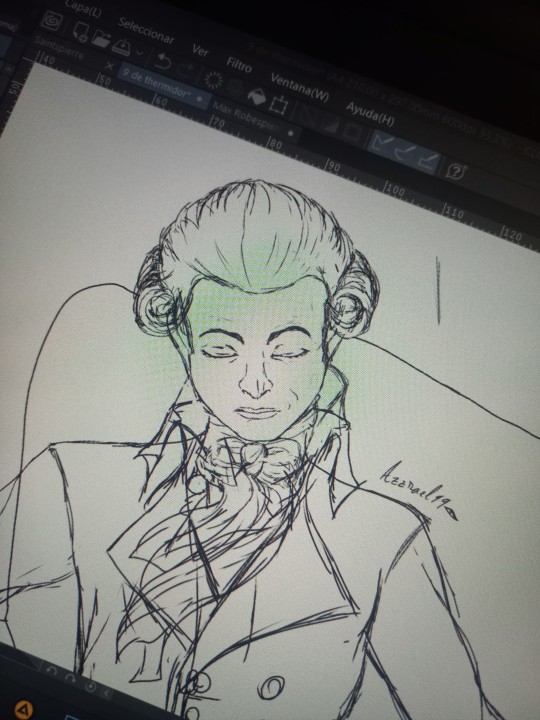
News is coming for thermidor!!! 😜
#frev#french revolution#art#robespierre#maximilien robespierre#frev art#artist#sketcher#sketch#artists on tumblr#french revolution art#thermidor#9 thermidor#ou la mort#liberté
16 notes
·
View notes
Note
Give me the last words of every figure that had a role in the French revolution
(Maybe it will be to many so you can give a little of if you want)
Louis XVI — on January 22 1793, Suite du Journal de Perlet reported the folllwing about the execution that had taken place the day before:
[Louis] climbs the scaffold, the executioner cuts his hair, this operation makes him flinch a little. He turns towards the people, or rather towards the armed forces which filled the whole place, and with a very loud voice, pronounces these words: “Frenchmen, I die innocent, it is from the top of the scaffold, and ready to appear before God, that I tell this truth; I forgive my enemies, I desire that France…” Here he was interrupted by the noise of the drums, which covered some voices crying for mercy, he himself took off his collar and presented himself to death, his head fell, it was a quarter past ten.
Jean-Paul Marat — several people who came to witness during the trial of Charlotte Corday reported Marat’s last words to have been a cry for help to his fiancée Simonne Évrard:
Laurent Basse, courier, testifies that being on Saturday, July 15 (sic), at Citizen Marat's house, between seven and eight o'clock in the evening, busy folding newspapers, he saw the accused come, whom citoyenne Évrard and the portress refused entrance. Nevertheless, citizen Marat, who had received a letter from this woman, heard her insist and ordered her to enter, which she did. A few minutes later, on leaving, he heard a cry: ”Help me, my dear friend, help me!” (À moi, ma chere amie, à moi !). Hearing this, having entered the room where citizen Marat was, he saw blood come out of his bosom in great volumes; at this sight, himself terrified, he cried out for help, and nevertheless, for fear that the woman should make an effort to escape, he barred the door with chairs and struck her in the head with a blow; the owner came and took it out of his hands.
The president challenges the accused to state what she has to answer. I have nothing to answer, the accused says, the fact is true.
Another witness, Jeanne Maréchal, cook, submits the same facts; she adds that Marat, immediately taken from his bathtub and put in his bed, did not stir.
The accused says the fact is true.
Another witness, Marie-Barbe Aubin, portress of the house where citizen Marat lived, testifies that on the morning of July 13, she saw the accused come to the house and ask to speak to citizen Marat, who answered her that it was impossible to speak to him at the moment, attenuated the state where he had been for some time, so she gave a letter to deliver to him. In the evening she came back again, and insisted on speaking to him. Aubin and citoyenne Évrard refused to let her in; she insisted, and Marat, who had just asked who it was, having learned that it was a woman, ordered her to be let in; which happened immediately. A few moments later, she heard a cry: "Help me, my dear friend!” (À moi, ma chere amie !);she entered, and saw Marat, blood streaming from his bosom; frightened, she fell to the floor and shouted with all her might: À la garde! Au secours !
The accused says that everything the witness says is the most exact truth.
Girondins — Number 64 of Bulletin du Tribunal Criminel, written shortly after the execution, reports that, once arrived at Place de la Révolution, the Girondins sang Veillons au Salut de l’Empire together while waiting for their turn to mount the scaffold. Lehardy’s last words are reported to have been Vive la République, ”which was generally heard, thanks to the vigorous lungs nature had provided him with.”
Hébertists — On March 31, a week after the execution, Suite de Journal de Perlet reported the following anecdote, though I’ll let it be unsaid whether it should be taken seriously or not:
Here is an anecdote which can serve to make better known the eighteen conspirators whom the sword of the law has struck. On the day of their execution, several heads had already fallen when General Laumur's turn arrived. Ronsin and Vincent looked at him at the scaffold and said to Hébert: ”Without the clumsiness of this j... f... we would have succeeded.” They were alluding to the indiscretion of Laumur, who would tell anyone who would listen that the Convention had to be destroyed.
In Mémoires sur Carnot par son fils (1861), Carnot’s son also claims that, on the day of the execution, his father got stuck in the crowd witnessing the tumbrils pass on their way to the scaffold, close enough to hear Cloots say: “My friends, please do not confuse me with these rascals.”
Dantonists — the famous idea that Danton’s last words were: ”show my head to the people, it’s worth seeing” is, according to Michel Biard, at best backed by a dubious source — Souvernirs d’un sexagénaire (1833) by Antoine Vincent Arnault:
I found there all the expression of the sentiment which inspired Danton with his last words; terrible words which I could not hear, but which people repeated to each other, quivering with horror and admiration. ”Above all, don't forget,” he said to the executioner with the accent of a Gracque, ”don't forget to show my head to the people; it’s worth seeing.” At the foot of the scaffold he had said another word worthy of being recorded, because it characterizes both the circumstance which inspired it, and the man who uttered it. With his hands tied behind his back, Danton was waiting his turn at the foot of the stairs, when his friend Lacroix, whose turn had come, was brought there. As they rushed towards each other to give each other the farewell kiss, a guard, envying them this painful consolation, threw himself between them and brutally separated them. "At least you won't prevent our heads from kissing each other in the basket," Danton told him with a hideous smile.
Biard does however question how reliant Arnault really is, considering his account partly contradicts what earlier, more reliable ones, had to say about the execution. None of the authentic to somewhat autentic descriptions of the dantonist execution I’ve been able to find mention any recorded last words from Danton or his fellow convicts. That has not hindered authors and historians throughout the centuries to let their imagination run wild with the execution — look for example at how many have had Danton say something menacing about Robespierre on his way to the scaffold. Early Desmoulins biographers often have him be a sobbing mess, saying things like "Citizens! it is your preservers who are being sacrificed. It was I — I, who on July 12th called you first to arms! I first proclaimed liberty… My sole crime has been pity...” (Methley, 1915) or ”Thus, then, the first apostle of Liberty ends!” (Claretie,1876) and for Fabre there exists the claim that he hummed his song Il pleut bergère on his way to the scaffold, or muttered his biggest regret was not being able to finish his vers (verses), to which Danton replied that, within a week, he’ll have more vers (worms) than he can dream of. None of these statements do however appear to be backed by any primary sources. Finally, John Gideon Millingen, twelve years old at the time of the execution, reported in his Recollections of Republican France 1791-1801 (1848) that ”[Danton’s] execution witnessed one of those scenes of levity that seemed to render death to a jocose matter. Lacroix, who was beheaded with him, was a man of colossal stature, and, as he descended from the cart, leaning upon Danton, he observed, ”Do you see that axe, Danton? Well, even when my head is struck off I shall be taller than you!” It does however strike me as unlikely for Milligen to actually have been able to hear anything of what the condemned had to say.
Robespierrists — like with the dantonists, we have several alleged last words from more or less unreliable sources. The apocryphal memoirs of the Sansons does for example report Saint-Just’s last words to have an emotionless ”Adieu” to Robespierre, and for the latter we have a story that his last recorded words were ”Merci Monsieur,” which he said to a man for giving him a handkerchief to wipe away the blood coming out of his shattered jaw with. However, here I have again collected trustworthy descriptions, and none of them record any last words. In this instance it’s not exactly strange either, given the fact many of the condemned had been injured so badly they were more or less unconscious by the time of the execution.
Other alleged final words can be found in this post, among others Madame Roland’s ”Oh Liberty, what crimes are committed in your name” and Bailly’s ”I’m cold.” I will however doubt the authenticity of all of them until someone shows me a serious source for them (the author of the post doesn’t cite any at all). Like I wrote above, I doubt anyone actually stood close enough to hear any eventual last words.
#french revolution#frev#robespierre#danton#brissot#hébert#louis xvi#desmoulins#fabre d’eglantine#ronsin#vincent#ask#the extent actual historians have fictionalized the death of actual people is pretty f:ed up if you ask me#read biard’s la liberté ou la mort: mourir en depute and you’ll see…
35 notes
·
View notes
Text
I have a better term for non binary royalty: SCUM!
Because I’m absolutely sick of having literally no decent terms for nonbinary people:
Nonbinary Gendered Titles
(Not to be mistaken for ungendered/unisex titles)
Emperor/Empress - Emperett/Emperon
King/Queen - Caln/Reign/Rege
Prince/Princess - Princet/Princen/Prin
Lord/Lady - Loden
Baron/Baroness - Baronen
Baronet/Baronetess - Baroneten
Duke/Duchess - Duxen/Duket
Count/Countess - Counten/Countet
Mom/Dad - Bub/Pib
Mommy/Daddy - Bubby
Mama/Dada - Baba
Mother/Father - Pither
Son/Daughter - Tawn
Brother/Sister - Kinther
Niece/Nephew - Nepom
Aunt/Uncle - Entle
Mister/Miss - Misset/Misser
Sir/Ma’am - Don
76 notes
·
View notes
Text
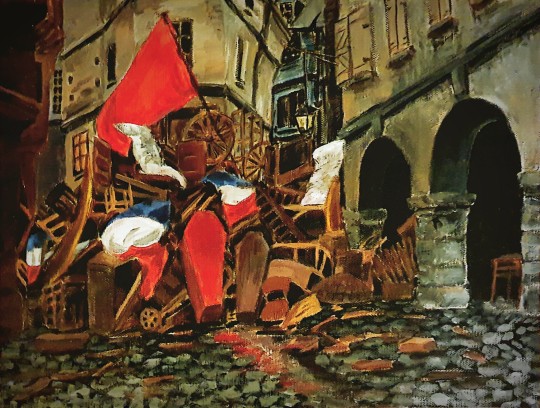
La Liberté ou la Mort! Acrylic on canvas. Somehow managed to exceed my own expectations.
#My art#Les Miserables#Les Mis#Based on the 2012 film set. On that note: I've heard that there's going to be a re-release.#Spent six or seven hours on the damn thing. Would appreciate any and all feedback.
372 notes
·
View notes
Text
La liberté ou la mort, extrait
Robespierre jouait à lancer des branches à Brount avec Elisabeth, à quelques distances devant eux. Il courrait pour entraîner le molosse derrière lui, et jetait le bâton de toutes ses forces, ne se souciant pas de voir s'il risquait de tacher ses bas blancs de boue. Brount partait comme un fou avec ses grandes pattes désordonnées, la langue pendant sur le côté et la queue frétillante. Quand il revenait avec le morceau de bois, Elisabeth et Maximilien devaient s'escrimer à le lui récupérer et tiraient de toutes leurs forces pour le lui arracher de la gueule. Le jeu recommençait ensuite, pour la plus grande joie des trois participants.
Saint-Just marchait les bras croisés dans le dos, au rythme d'Eléonore.
-Eléonore, maintenant que nous sommes bons amis, puis-je me permettre une question?
La jeune fille lui sourit d'un air indulgent.
- Voyons la question.
Saint-Just se racla la gorge et fixa son regard sur la pointe de ses bottes.
- Eh bien... je ne comprends pas que tu ne sois pas amoureuse de lui.
Eléonore laissa échapper un petit rire. Elle ne paraissait pas particulièrement vexée ou embarrassée par cette question indiscrète.
-Et pourquoi cela ? demanda-t-elle.
Saint-Just redressa la tête et fit un geste de la main vague vers Brount qui s'était mis à aboyer joyeusement, et Elisabeth qui faisait semblant de jeter le bâton pour la troisième fois.
- Je ne sais pas, regarde le... Tout à l'heure il faisait un travail de géant pour la patrie, et maintenant il se contente d'une récompense si simple ! Jouer avec son chien, nourrir ses oiseaux, manger le potage de ta mère ce soir, lire quelques pages de Rousseau au coin du feu...
-... quelques oranges, une visite de son cher Saint-Just...
- Si nous parvenons à installer et à protéger notre république, il ne cherchera aucune récompense pour lui même. Il ne faudra pas davantage que ces quelques plaisirs que nous avons évoqués pour faire son bonheur. Quand on en vient à le connaitre, il est si doux, si sincère. Parfois, cela me noue le coeur quand j'y pense.
- Certainement, approuva Eléonore en venant prendre le bras d'Antoine, et c'est pour cela que mes parents le considèrent comme leur fils et moi comme mon frère. Le sang ne me le rendrait pas plus cher.
- Un frère, oui...Mais imagine le comme époux, ne serait-ce pas mieux encore ? La voix de Saint-Just s'était réduite à un murmure rêveur. Il est si loyal, si dévoué. Non vraiment, tu ne trouveras pas mieux que lui.
-Pour ce qui est du physique... commença Eléonore
- Du physique ! répéta-t-il, le cri qu'il ne réussit par à réprimer attirant un instant l'attention de Brount vers lui. Comment peux tu parler du physique face à une telle âme ! Et puis de toute façon la physionomie de Maximilien n'a rien de désagréable, regarde, il est petit certes, mais il a les mollets bien fait, une mine intelligente, des yeux verts, un joli nez...
- Tu ne trouves pas qu'il a un style un peu démodé?
- Maximilien s'en fiche des fariboles de la mode! Il prends soin de ses vêtement et il est toujours bien mis. On ne peut pas en dire autant des trois quarts des députés qui siègent à la Convention avec les cheveux gras et les bottes crottées. Son style est très respectable.
Eléonore se mit à rire de bon coeur devant l'air révolté de Saint-Just.
-Antoine... Si moi je ne suis pas amoureuse de lui, rien ne t'empêche de l'être, toi.
42 notes
·
View notes
Text
Les petites nouvelles
Monsieur gecko est mort il y a qqs mois d'une infection à la queue qui s'est propagée en qqs heures. Madame gecko est morte cette semaine. J'ai appris hier que c'était probablement de tristesse.
Bébé gecko va bien. Il est orphelin mais comme ses parents ont voulu le manger dès sa naissance j'imagine qu'il n'est pas trop affecté et que ça lui va bien d'avoir cette jungle pour lui tout seul. Il mange bien, il se promène.
Il est 6h30, je crève de mal aux mains, je ne sais plus dormir. Vivement qu'on ait fini ce bois. On est plus efficaces et organisés que l'année dernière mais cette essence est si filandreuse et remplie de noeuds omg on se voit à peine avancer.
Il pleuvine et j'entends les oiseaux du jardin en même temps. Meilleure playlist pour un matin sans sommeil.
Par contre je n'entends pas le grillon du terrarium, ça fait DES MOIS qu'il se planque et qu'il ne se fait pas bouffer et qu'il gueule TOUUUUTE LA NUIT. Ou alors il s'est sauvé. J'ai changé le néon hier et j'en ai profité pour libérer un accès de la taille d'un grillon dans la zone où on passe les câbles. Ou alors c'est déjà trop le matin et il dort après sa nuit de cris. Cris inutiles puisqu'il est seul de son espèce.
L'herbe qu'on a semée pousse enfin touuuut doucement. Il reste une zone en désordre, qui sera bientôt rangée parce qu'on doit y mettre le bois. Ensuite il faudra mettre un portail d'un côté de la maison et une barrière de l'autre. Ça fait 17 ans qu'on est là et je n'aime toujours pas l'idée de fermer les accès au jardin. Mais bon j'ai envie d'avoir des poules en liberté donc il faut restreindre cette liberté à l'espace du jardin. Pas la route, pas les voisins et surtout pas le champ juste en face, bourré de sales produits.
Il y a eu un article cette semaine qui déconseille de manger les oeufs de ses propres poules, à cause des pfas contenus dans les sols. Ce sera bientôt pareil avec les légumes j'imagine. Pour mieux nous vendre des oeufs de batterie et des légumes pas bio. Mangez notre merde, au moins elle nous enrichit.
Mon frère vit dans l'ancien appartement de mes beaux-parents le temps de construire sa maison. Ça se termine, on va bientôt vendre. On hésitait à louer ou vendre mais putain les impôts. Quand on est propriétaire d'un bien qu'on loue, on est imposé sur son revenu cadastral X3. Normalement c'est rentabilisé par le loyer qu'on reçoit mais comme on ne demande quasi rien à mon frère parce que c'est mon frère, on est en perte totale. En plus le syndic coûte un rein et n'est pas transparent quant aux travaux qu'il organise pour la copropriété, ça fait 20 ans que j'ai l'impression que ce type a juste trouvé un bon filon pour entuber des petits vieux. On a calculé que si on louait même au prix du marché, ça ne ferait que 3000 euros de bénéfices sur l'année si le syndic ne fait pas de travaux. Mais des travaux sont prévus. On ajoute à ça la charge mentale d'être proprio et d'essayer de faire ça bien (genre pas faire attendre les locataires si le chauffage est en panne). Bref on va bientôt vendre, être débarrassés de cet appart et on ne sait pas ce qu'on va faire de l'argent parce que ça ne sert à rien de le placer sur un compte épargne, les taux sont trop bas par rapport à l'inflation. J'ai envie d'acheter une parcelle de forêt et y mettre une grande yourte et faire des ateliers de lecture dedans. A priori, l'idée est rejetée. On veut surtout que l'ado ne soit pas sans rien quand il aura besoin.
25 notes
·
View notes
Text
Have any of you read this yet?
I just downloaded this e-book. My heart is beating faster with excitement, already. :-)
26 notes
·
View notes
Text
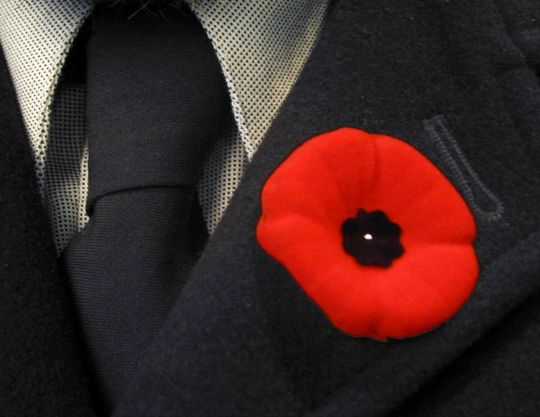
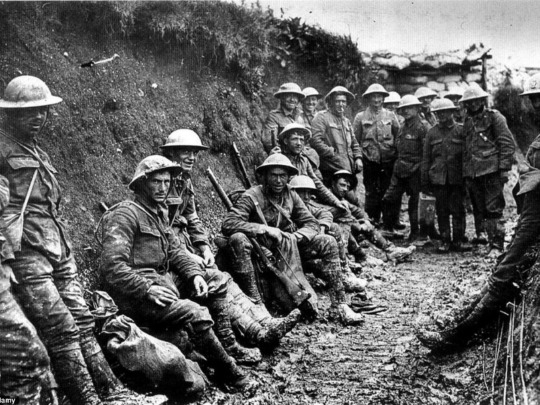
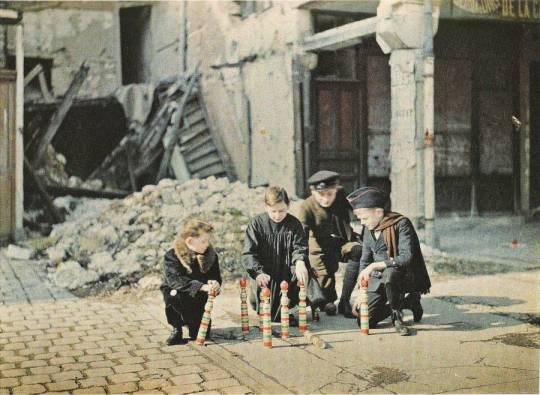
En ce Jour du Souvenir, portons le coquelicot et accordons une minute de silence pour tous les soldats qui se sont sacrifiés pour notre liberté! N'oublions pas non plus d'honorer nos vétérans et ceux qui servent le pays car ils le méritent. En espérant que l'avenir nous apportera des temps de paix, voici un poème de Paul Eluard:
Sur mes cahiers d’écolier Sur mon pupitre et les arbres Sur le sable sur la neige J’écris ton nom Sur toutes les pages lues Sur toutes les pages blanches Pierre sang papier ou cendre J’écris ton nom Sur les images dorées Sur les armes des guerriers Sur la couronne des rois J’écris ton nom Sur la jungle et le désert Sur les nids sur les genêts Sur l’écho de mon enfance J’écris ton nom Sur les merveilles des nuits Sur le pain blanc des journées Sur les saisons fiancées J’écris ton nom Sur tous mes chiffons d’azur Sur l’étang soleil moisi Sur le lac lune vivante J’écris ton nom Sur les champs sur l’horizon Sur les ailes des oiseaux Et sur le moulin des ombres J’écris ton nom Sur chaque bouffée d’aurore Sur la mer sur les bateaux Sur la montagne démente J’écris ton nom Sur la mousse des nuages Sur les sueurs de l’orage Sur la pluie épaisse et fade J’écris ton nom Sur les formes scintillantes Sur les cloches des couleurs Sur la vérité physique J’écris ton nom Sur les sentiers éveillés Sur les routes déployées Sur les places qui débordent J’écris ton nom Sur la lampe qui s’allume Sur la lampe qui s’éteint Sur mes maisons réunies J’écris ton nom Sur le fruit coupé en deux Du miroir et de ma chambre Sur mon lit coquille vide J’écris ton nom Sur mon chien gourmand et tendre Sur ses oreilles dressées Sur sa patte maladroite J’écris ton nom Sur le tremplin de ma porte Sur les objets familiers Sur le flot du feu béni J’écris ton nom Sur toute chair accordée Sur le front de mes amis Sur chaque main qui se tend J’écris ton nom Sur la vitre des surprises Sur les lèvres attentives Bien au-dessus du silence J’écris ton nom Sur mes refuges détruits Sur mes phares écroulés Sur les murs de mon ennui J’écris ton nom Sur l’absence sans désir Sur la solitude nue Sur les marches de la mort J’écris ton nom Sur la santé revenue Sur le risque disparu Sur l’espoir sans souvenir J’écris ton nom Et par le pouvoir d’un mot Je recommence ma vie Je suis né pour te connaître Pour te nommer Liberté.
28 notes
·
View notes
Text
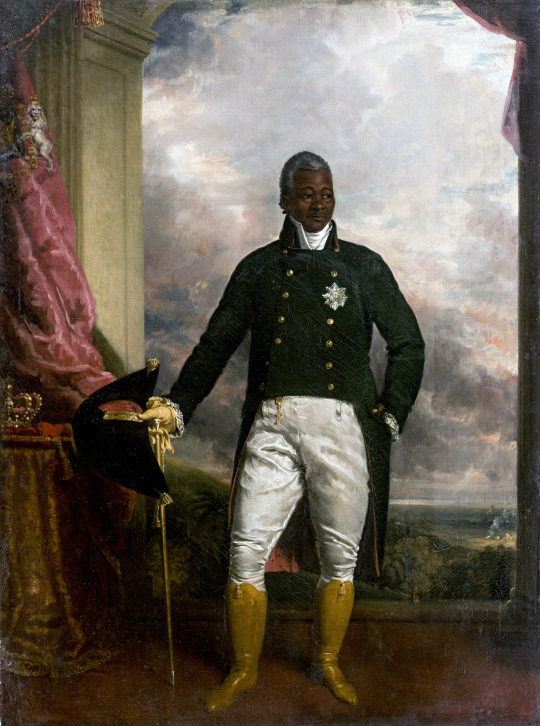
Portrait of Henri Christophe, King of Haiti. By Richard Evans.
#richard evans#king henri christophe#king of haiti#Royaume d'Haïti#henri Ier#Roi d'Haïti#vive le roi#full length portrait#monarquías americanas#Famille Christophe#Roi de l'île de la Tortue#Roi de la Gonâve#monarquias americanas#full-length portrait#dynastie Christophe#Révolution haïtienne#haiti#liberté ou la mort
17 notes
·
View notes
Text
Sur mes cahiers d’écolier Sur mon pupitre et les arbres Sur le sable sur la neige J’écris ton nom
Sur toutes les pages lues Sur toutes les pages blanches Pierre sang papier ou cendre J’écris ton nom
Sur les images dorées Sur les armes des guerriers Sur la couronne des rois J’écris ton nom
Sur la jungle et le désert Sur les nids sur les genêts Sur l’écho de mon enfance J’écris ton nom
Sur les merveilles des nuits Sur le pain blanc des journées Sur les saisons fiancées J’écris ton nom
Sur tous mes chiffons d’azur Sur l’étang soleil moisi Sur le lac lune vivante J’écris ton nom
Sur les champs sur l’horizon Sur les ailes des oiseaux Et sur le moulin des ombres J’écris ton nom
Sur chaque bouffée d’aurore Sur la mer sur les bateaux Sur la montagne démente J’écris ton nom
Sur la mousse des nuages Sur les sueurs de l’orage Sur la pluie épaisse et fade J’écris ton nom
Sur les formes scintillantes Sur les cloches des couleurs Sur la vérité physique J’écris ton nom
Sur les sentiers éveillés Sur les routes déployées Sur les places qui débordent J’écris ton nom
Sur la lampe qui s’allume Sur la lampe qui s’éteint Sur mes maisons réunies J’écris ton nom
Sur le fruit coupé en deux Du miroir et de ma chambre Sur mon lit coquille vide J’écris ton nom
Sur mon chien gourmand et tendre Sur ses oreilles dressées Sur sa patte maladroite J’écris ton nom
Sur le tremplin de ma porte Sur les objets familiers Sur le flot du feu béni J’écris ton nom
Sur toute chair accordée Sur le front de mes amis Sur chaque main qui se tend J’écris ton nom
Sur la vitre des surprises Sur les lèvres attentives Bien au-dessus du silence J’écris ton nom
Sur mes refuges détruits Sur mes phares écroulés Sur les murs de mon ennui J’écris ton nom
Sur l’absence sans désir Sur la solitude nue Sur les marches de la mort J’écris ton nom
Sur la santé revenue Sur le risque disparu Sur l’espoir sans souvenir J’écris ton nom
Et par le pouvoir d’un mot Je recommence ma vie Je suis né pour te connaître Pour te nommer
Liberté.
Paul Eluard
Poésie et vérité 1942 (recueil clandestin) Au rendez-vous allemand (1945, Les Editions de Minuit)
22 notes
·
View notes
Note
Was suicide really seen as noble during the French Revolution? Was there any recorded tension regarding this cultural shift with more religious or less revolutionary people/groups? Thanks!
In the book La liberté ou la mort: mourir en député 1792-1795 (2015) can be found a list of all the deputies of the National Convention that died unnatural deaths between 1792 and 1799. Of the 96 names included on it, 16 were those of suicide victims, and to these must also me added a number of botched suicide attempts as well.
Only a single one of these suicides appears to have been driven by something outside of politics, that of the deputy Charlier, who shot himself in his apartment on February 23 1797, two years after the closing of the Convention. The rest of the suicides are all very clearly politically motivated, more specifically, deputies killing themselves just as the machinery of revolutionary justice was about to catch up to them. There’s those who killed themselves while on the run and unsheltered from the hostile authorities — the girondin Rebecqui who on May 1 1794 drowned himself in Old Port of Marseille, Pétion and Buzot who on June 24 1794 shot themselves after getting forced to leave the garret where they for the last few months had been hiding out, Maure who shot himself while in hiding on 3 June 1795 after having been implicated in the revolt of 1 Prairial, Brunel, who on May 27 shot himself after failing to quell a riot in Toulon, and Tellier, who similarily shot himself on September 17 1795 due to a revolt directed against him in the commune of Chartres. Barbaroux too attempted to shoot himself on June 18 1794 but only managed to blow his jaw off. He was instead captured and guillotined. There’s those that put an end to their days once cornered by said authorities — Lidon, who on November 2 1793 shot himself after having been discovered at his hiding place by two gendarmes (he did however first fire three shots at said gendarmes, one of whom got hit in the cheek) and Le Bas who shot himself in the night between July 27 and 28 1794 as National guardsmen stormed the Hôtel de Ville where he and his allies were hiding out (according to his wife’s memoirs, already a few days before this he had told her that he would kill them both right then and there wasn’t it for the fact they had an infant son). In an interrogation held two o’clock in the morning on July 28 1794, Augustin Robespierre too revealed that the reason he a few hours earlier had thrown himself off the cordon of the Hôtel de Ville was ”to escape from the hands of the conspirators, because, having been put under a decree of accusation, he believed his death inevitable,” and there’s of course an eternal debate on whether or not his older brother too had attemped to commit suicide at Hôtel de Ville that night or if he was shot by a guard (to a lesser extent, this debate also exists regarding Couthon). There’s those who committed suicide in prison to avoid an unfriendly tribunal — Baille who hanged himself while held captive in the hostile Toulon on September 2 1793, Condorcet who took poison and was found dead in his cell in Bourg-la-Reine on 29 March 1794 (though here there exists some debate on whether it really was suicide or if he ”just” died from exhaustion) and Rühl, who stabbed himself while in house arrest on May 29 1795. On March 17 1794, Chabot tried to take his life in his cell in the Luxembourg prison by overdosing on medicine (he reported that he shouted ”vive la république” after drinking the liquor) but survived and got guillotined. Finally, there’s those who held themselves alive for the whole trial but killed themselves as soon as they heard the pronounciation of the death sentence — the girondin Valazé who stabbed himself to death on October 30 1793 and the so called ”martyrs of prairial” Duquesnoy, Romme, Goujon, Bourbotte (in a declaration written shortly before his death he wrote: ”Virtuous Cato, no longer will it be your example alone that teaches free men how to escape the scaffold of tyranny”), Duroy and Soubrany who did the same thing on June 17 1795 (only the first three did however succeed with their suicide, the rest were executed the very same day).
To these 24 men must also be added other revolutionaries that weren’t Convention deputies, such as Jacques Roux who on February 10 1794 stabbed himself in prison, former girondin ministers Étienne Clavière who did the same thing on December 8 1793 (learning of his death, his wife killed herself as well) and Jean Marie Roland who on November 10 1793 ran a sword through his heart while in hiding, after having been informed of his wife’s execution, Gracchus Babeuf and Augustin Darthé who attempted to stab themselves on May 27 1797 after having been condemned in the so called ”conspiracy of equals,” but survived and were executed the next day, as well as two jacobins from Lyon — Hidins who killed himself in prison before the city got ”liberated,” and Gaillard who did the same thing shortly after the liberation, after having spent several weeks in jail.
With all that said, I think you could say taking your life was considered ”noble” in a way, if it allowed you to die with greater dignity than letting the imposition of revolutionary judgement take it instead did. It was at least certainly a step up compared to before 1789, when suicide (through the Criminal Ordinance of 1670) was considered a crime which could lead to confiscation of property, opprobium cast on the victim’s family and even subjection of the courpse to various outrages, like dragging it through the street. To nuance this a bit, it is however worth recalling that this was only in theory, and that in practise, most of these penalties had ceased to be carried out already in the decades before the revolution, a period during which suicide, in the Enlightenent’s spirit of questioning everything, had also started getting discussed more and more. The word ”suicide” itself entered the French dictionary in 1734. Most of the enlightenment philosophes reflected on suicide and the ethics behind it. There’s also the widely spread The Sorrows of Young Werther that was first released in 1774. Furthermore, most revolutionaries were also steeped in the culture of Antiquity, where suicide was seen as an admirable response to political defeat, perhaps most notably those of Brutus and Cato the younger, big heroes of the revolutionaries. Over the course of the revolution, we find several patriotic artists depicting famous suicides of Antiquity — such as Socrates (whose death is considered by some to have been a sort of suicide) (1791) by David, The Death of Cato of Utica (1795) by Guillaume Guillon-Lethière, and The death of Caius Gracchus (1798) by François Topino-Lebrun. According to historian Dominique Godineau, the 18th century saw ”the inscription [of suicide] in the social landscape, at least in large cities: it has become “public,” people talk about it, it is less hidden than at the beginning of the century,” and she therefore argues that the decision to decriminalize it in the reformed penal code (it didn’t state outright that suicide was now OK, but it no longer listed it as a crime) of 1791 wasn’t particulary controversial.
Furthermore, that committing suicide was more noble than facing execution was still far from an obvious, universal truth during the revolution. In his memoirs, Brissot does for example recall that, right after the insurrection of May 31, when he and other ”girondins” discussed what to do was an act of accusation to be issued against them, Buzot argued that ”the death on the scaffold was more courageous, more worthy for a patriot, and especially more useful for the cause of liberty” than committing suicide to avoid it. The feared news of their act of accusation did however arrive before the girondins had reached a definitive conclusion on what to do, leading to some fleeing (among them Buzot, who of course ironically ended up being one of the revolutionaries that ultimately chose suicide over the scaffold) and some calmly awaiting their fate. In her memoirs, Madame Roland did her too consider going to the scaffold with her head held high to be an act of virtue — ”Should I wait for when it pleases my executioners to choose the moment of my death and to augment their triumph by the insolent clamours of the mob to which I would be exposed? Certainly!” In his very last speech to the Convention, convinced that his enemies were rounding up on him, Robespierre exclaimed he would ”drink the hemlock,” a reference to the execution of Socrates. The girondin Vergniaud is also said to have carried poison on him but chosen to have go out with his friends on the scaffold, although I’ve not yet discovered what the source for this is. It can also be noted that the number of Convention deputies who let revolutionary justice have its course with them was still considerably higher than those who attempted to put an end to their days before the sentence could be carried out.
According to Patterns and prosecution of suicide in eighteenth-century Paris (1989) by Jeffrey Merrick, there was indeed tension regarding the rising amount of suicides in the decades leading up to the revolution. Merrick cites first and foremost the printer and bookseller Siméon Prosper Hardy, who in his journal Mes loisirs ou journal des evenements tels qu'ils parviennent a ma connaissance (1764-1789), documented a total of 259 cases of Parisian suicides. Hardy saw these deaths as an unwelcome import from the English, who for their part were led to kill themselves due to ”the dismal climate, unwholesome diet, and excessive liberty.” He also blamed the suicides on "the decline of religion and morals," caused by the philosophes, who in their ”bad books” popularized English ways of thinking and undermined traditional values. He was not alone in drawing a connection between the suicides and the new ideas. According to Merrick, the clergy in general ”denounced the philosophes for legitimizing this unforgiveable crime against God and society, which they now associated with systematic unbelief more than the traditional diabolical temptation.” In practice, many parish priests did however still quietly bury the bodies of persons who killed themselves. The future revolutionary Louis Sébastien Mercier did on the other hand blame the government and its penchant for inflated prices and burdensome taxes for the alleged epidemic of suicides in his Tableau de Paris (1782-1783).
In La liberté ou la mort: mourir en député, 1792-1795 it is also established that there weren’t that many participants of the king that killed themselves once the wind started blowing in the wrong direction, but that is not to say they didn’t exist. As example is cited the case of a man who in April 1793 shot himself on Place de la Révolution, before having written ”I die for you and your family” on a gravure representing the head of Louis XVI. There’s also the case of Michel Peletier’s murderer Philippe Nicolas Marie de Pâris, royalist and former king’s guard, who, similar to Lidon, blew his brains out when the authorities had him cornered a week after the murder.
Sources:
Patterns and prosecution of suicide in eighteenth-century Paris (1989) by Jeffrey Merrick
Pratiques du suicide à Paris pendant la Révolution française by Dominique Godineau
La liberté ou la mort: mourir en député, 1792-1795 (2015) by Michel Biard, chapter 5, ”Mourir en Romain,” le choix de suicide.
Choosing Terror (2014) by Marisa Linton, page 276-279, section titled ”Choosing how to die.”
#well. this is depressing 😀#frev#french revolution#ask#would tag everyone that (tried to) killed themselves but that would take ages
63 notes
·
View notes
Text
Je n'oublierai jamais ceux qui nous ont aidés à être ce que nous sommes - même dans l'horreur du sang et les puits de la nuit. Je n'oublierai jamais les cris et l'attente impatiente - et le cœur déchiré aux fusils de l'ennemi, aux croix d'une liberté - qui pèse. Comme un faix, un faisceau - qui de leurs fers rayonne à la vie qui claironne.
À ceux qui sont restés sans plus d'espoir, la vie brisée et les mains noires, à celles qui ont porté - l'abandon - qui ont pleuré - subi et enduré - d'être seules, d'être veuves ; à ceux qui sont laissés - en déshérence - au pied de leur souffrance que l'on tait sans mémoire ; mais qui ont vu au ciel une aube s'ébrécher sur la mort qui sépare au seuil de la victoire... et qui ont persisté - comme un feuillage - dans les douleurs irrécusables,
J'ouvre les yeux et cède ma voix. Ils ont porté la vie - dans le deuil ou la tombe ils ont créé - par-delà les décombres, sans succomber aux ombres ni aux mensonges vomis. Ils ont su regermer - au milieu de leurs plaies - des libertés en gloire comme des fleurs dressées sur d'anciens champs minés.
Je n'oublierai jamais le courage et la peur - et les atrocités dont je ne peux parler et qui n'ont pas d'images dans les yeux de mon âge. Je n'oublierai jamais ceux qui ont raconté ni ceux qui ont semé mes pleurs de liberté et mes cris de fierté - d'être au monde et leur fille - d'assumer l'ascendance qui fait notre impudence - de combattre et d'aimer.
16 notes
·
View notes
Text

MA FRANCE ET MOI
"C’est celle de 1789, une FRANCE qui se lève, celle qui conteste, qui refuse !
La FRANCE qui proteste qui veut savoir, c’est la FRANCE joyeuse, curieuse et érudite, la FRANCE de Molière qui tant se battit contre l’hypocrisie, celle de La Fontaine celle de Stendhal, de Balzac, celle de Jaurès, celle de Victor Hugo et de Jules Vallès !
La FRANCE de l’invention, des chercheurs, celle de Pasteur, celle de Denis Papin et de Pierre et Marie Curie !
La FRANCE des Lettres, celle de Chateaubriand, de Montaigne, la FRANCE de la Poésie, celle de Musset, d’Eluard, de Baudelaire, de Verlaine et celle d’ Aimé Césaire !
La FRANCE qui combat tous les totalitarismes, tous les racismes, tous les intégrismes, l’obscurantisme et tout manichéisme !
La FRANCE qui aime les Mots, les Mots doux, les Mots d’Amour, et aussi la Liberté de dire des gros Mots !
La FRANCE qui n’en finira jamais de détester le mot "SOUMISSION" et de choyer le Mot RÉVOLTE !
Oui ma FRANCE à moi c’est celle des Poètes, des Musiciens, celle d’Armstrong, celle de l’Accordéon, celle des Chansons douces, des Chansons graves, des Espiègles, des Humoristiques, des Moqueuses ou celle truffée de Mots qui font rêver d’un Amour que l’on n’osera jamais déclarer à celle qu’on aime.
Ma FRANCE à moi c’est celle de Picasso, de Cézanne et celle de Soulages, celle d’Ingres, celle de Rodin !
La FRANCE des Calembours, des "Bidochons", celle de la Paillardise aussi bien que celle du "Chant des Partisans".
Ma FRANCE c’est celle de Daumier, celle de l’ "Assiette au beurre", du "Sapeur Camembert", celle de Chaval, celle de Cabu, de Gottlieb, de Siné, celle du "Canard", de "Fluide Glacial" et de "Charlie", drôles, insolents, LIBRES !
Ma FRANCE, c’est aussi celle des dictées de Pivot celle de Klarsfeld et celle de Léopold Sedar Senghor, la FRANCE des "Enfants du Paradis" et des "Enfants du Veld ’hiv", celle de la Mode libre, celle de la Danse, des flirts et des Câlins, celle de la Musique douce et des Rocks déjantés, celle de la Gourmandise !
Ma France à moi c’est une FRANCE capable de renvoyer dos à dos la Bible et le Coran s’il lui prend l’envie d’être Athée !
Eh oui ! Ma FRANCE est une FRANCE LIBRE, FRATERNELLE et éternellement INSOUMISE aux dictats de la "bien-pensance" !
Il n’est qu’en respectant toutes ces diversités qu’on arrive un jour à vivre la "DOUCE FRANCE" de Trenet.
Celle qui m’a toujours plu et que notre jeunesse lucide et combative fera perdurer par-delà les obscurantismes.
Figure révolutionnaire, emblématique, durant "La Commune", le "Père Duchêne" écrivait au frontispice du Journal qu’il publiait en 1793 ,
"LA RÉPUBLIQUE OU LA MORT !"
Son journal coûtait 1 sou… mais on en avait pour son argent !"
Pierre Perret
C'était aussi ma FRANCE...
27 notes
·
View notes

